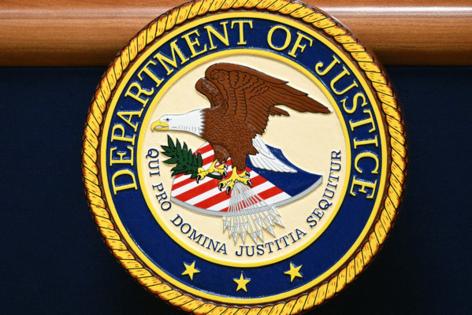DOJ probes Live Nation, AEG for COVID-era refund collusion
Published in Business News
The U.S. Justice Department is conducting a criminal antitrust probe into how companies responded to mass concert cancellations at the outset of the pandemic in 2020, according to people with knowledge of the matter.
The investigation is focused on whether Live Nation Entertainment Inc. and AEG Presents illegally colluded on refund policies for canceled concerts and dealt with artists to limit losses, according to the people, who asked not to be identified discussing the confidential probe. Prosecutors have weighed bringing charges, including against Live Nation and its Chief Executive Officer Michael Rapino, some of the people said.
At the outset of COVID-19, Live Nation, AEG and talent agencies publicly disclosed an industry-wide effort to respond to the crisis. Antitrust scrutiny of that initiative began during the Biden administration, but has ramped up since President Donald Trump took office with prosecutors in the DOJ’s antitrust division continuing to conduct interviews and review documents, some of the people said.
Live Nation is by far the largest player in the fast-growing live music industry and Rapino is one of its most powerful executives. The company has sparred with antitrust regulators during previous Republican and Democratic administrations, but a criminal probe marks an escalation of government scrutiny.
Justice Department criminal probes don’t always lead to charges and Live Nation, AEG and Rapino haven’t been accused of wrongdoing.
“It is not illegal for artist agents, promoters and ticketing companies to work together to solve the unprecedented challenges of a global pandemic,” said Dan Wall, Live Nation’s executive vice president of corporate and regulatory affairs. “While Live Nation contributed to this industry effort in good faith, we set our own unique policies and refund terms to support fans and artists. We did not collude with AEG or anyone else. We are proud of our leadership during those trying times, and if any charges result from this investigation, we will defend them vigorously.”
Live Nation shares fell 2.6% to $141.70 in extended trading.
A Justice Department spokesperson declined to comment. Spokespeople for Rapino and AEG didn’t respond to requests for comment.
The Justice Department’s criminal probe grew out of a civil antitrust investigation of Live Nation during the Biden administration. That probe resulted in a 2024 lawsuit that seeks to unwind Live Nation’s 2010 acquisition of Ticketmaster and change the company’s business practices.
Prosecutors will need to make a decision soon on the criminal case because there is a five-year statute of limitations to file antitrust charges that starts at the end of any alleged conspiracy. Any charging decisions could be complicated by the involvement in the discussions of talent agencies, which aren’t direct competitors. The agencies aren’t under scrutiny, according to some of the people familiar with the probe, but their participation in the industry effort gives the companies a basis to argue that any case should be brought under civil, not criminal statutes.
A lightning rod
Live Nation has rebounded dramatically since the pandemic. The company posted sales of $23.2 billion last year, more than double its total from just five years before. Its namesake concert promotion business handles more of the biggest tours than any of its competitors, while its Ticketmaster subsidiary sells tickets for a majority of major live events.
That influence over the industry has made the company a lightning rod for criticism. Since Live Nation’s controversial takeover of Ticketmaster, which joined the largest concert promoter in the U.S. with the biggest ticketing firm, the company has been criticized for fees levied on tickets, as well as contracts with artists and venues that require them to use Ticketmaster.
While sudden cancellations — like the ones caused by COVID-19 — can be costly for companies putting on live shows, concert sales, adjusted for inflation, have doubled over the last decade and many artists now see selling concert tickets as key to earning a living.
The company has said repeatedly that artists control the price of tickets and the market is competitive.
However, the growing cost of concert tickets and the challenge of securing admission to top tours has aggravated fans. Live Nation has blamed scalping for many of these problems, while also noting that high prices for secondary sales of tickets are evidence of demand.
“The best thing we can do as the next step is just create a lot of transparency,” Live Nation President Joe Berchtold said at an investor conference hosted by JPMorgan this week. “We’ve advocated for a lot of reforms.”
Live Nation lawsuit
The Live Nation civil lawsuit, which was joined by a group of state attorneys general, alleged a sweeping scheme to monopolize the live music industry. During their review, Justice Department attorneys referred conduct they had discovered to criminal prosecutors in the antitrust division’s New York office, some of the people said.
Under U.S. law, companies can face fines of up to $100 million for criminal antitrust violations and individuals up to 10 years in prison — although no one has been sentenced to more than five.
The White House issued an executive order in March directing the Federal Trade Commission and the Justice Department to police competition in the sector, saying it “has become blighted by unscrupulous middlemen.” It didn’t single out any specific firms.
Following the order, earlier this month, the Justice Department and the FTC issued an information request “to identify unfair and anticompetitive practices and conduct in the live concert and entertainment industry.”
(With assistance from Rob Golum.)
©2025 Bloomberg L.P. Visit bloomberg.com. Distributed by Tribune Content Agency, LLC.












Comments